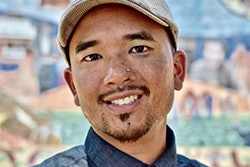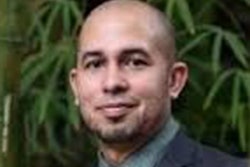Dr. Elyse Hambacher hasn’t forgotten the many inequities she witnessed at her culturally diverse high school in Miami and how her concern about them inspired her to become a teacher educator with a passion for social justice.
“I remember seeing lots of opportunities and privileges given to certain groups of students and not to others,” she says. “I also saw educational disparities and thought, ‘I need to understand this more. Something is not right.’”
So Hambacher teaches from the perspective “that in order to change the current White-dominant system, transformation must begin in the classroom,” observes Dr. Wayne E. Jones, Jr., interim provost and vice president for academic affairs at the University of New Hampshire.
Hambacher specializes in critical pedagogy, Jones explains, “an approach to teaching that helps students scaffold new understandings and actions by contextualizing and grappling with beliefs, practices and systems that have historically advantaged some groups of people and disadvantaged others.”
That’s important for diversity in higher education, Jones adds, because teacher educators in that vein “seek out voices that have been excluded from mainstream teaching and scholarship, moving these voices from the margins to the center.”
While earning her master’s degree at Columbia University Teachers College in 2005 and 2006, Hambacher substitute taught in New York City public schools. She relocated back to southern Florida – after getting her bachelor’s degree in elementary education from University of Florida (UF) in 2005 – and taught fourth-grade and kindergarten in Broward County public schools with a year in between teaching in Japan.
She served as a research assistant during 2009 at the Florida Excellence in Education Foundation. Following her doctoral fellowship at UF from 2009 to 2013 and receiving her Ph.D. there in 2013, she began her current tenure-track position at UNH.




















